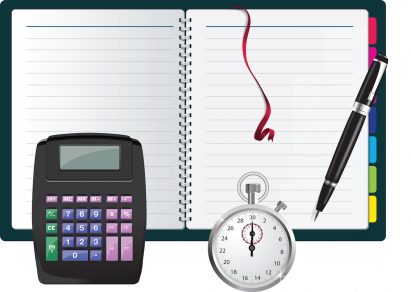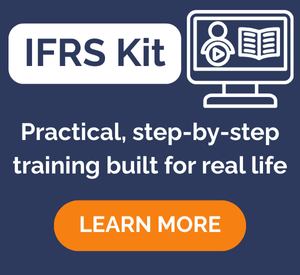Difference Between Fair Value Hedge and Cash Flow Hedge
The first thing you need to do before you even start to play with hedge accounting is to determine the TYPE of hedge relationship that you’re dealing with. Why? Because: the type of hedge determines your accounting entries. Make no mistake here. If you incorrectly…
IAS 21 The Effects of Changes in Foreign Exchange Rates
These days people use about 180 currencies world wide! The truth is that we, people, don’t want to stay isolated. We love to sell, buy, import, export, trade together and do many other things, all in foreign currencies! When you look at the business world,…
IAS 7 Statement of Cash Flows
Ignoring an accrual principle??? What?! No way! That’s the basic accounting rule we should all follow! Yes, of course, you’re right. BUT: There IS an exception. The statement of cash flows. Preparing the statement of cash flows might become the biggest accountant’s nightmare. Why is…
Our machines are fully depreciated, but we still use them! What shall we do?
Do you work in the production company? And did you find out that some of your production assets are still in operation but they were fully depreciated? In this case, the original estimate of machinery’s useful life proved to be incorrect. Here’s one of the…
Top 5 IFRS 2014 and 2013 Changes
The year 2013 started off with some really significant IFRS amendments that you need to take into account when preparing your IFRS financial statements as at 31 December 2013. Although these changes should be applied in the year 2013 for the first time, you also…
IFRS 2 Share-Based Payment
Does your company remunerate its top management by granting them own shares? Or, do employees receive bonuses based on the increase of the company’s share price? Transactions whereby companies pay for the goods or services received by issuing shares or similar instruments are very…
Hedge Accounting: IAS 39 vs. IFRS 9
Business world as of today presents a huge amount of various risks to almost every company or entrepreneur. I’m sure that also your company faces at least some of these risks: foreign currency risk, price risk, inflation risk, credit risk – just name it. Many…
IAS 36 Explained (2025): Full Impairment Guide + Free Practical Checklist
Updated: April 2025 IAS 36 prescribes the procedures to make sure that an asset is carried at no more than its recoverable amount. This guide breaks it down clearly, plus it includes a free video lecture and downloadable IAS 36 practical checklist. Jump to section:…
The Unconventional Guide To IAS 12 Tax Bases
Last week I published an article with summary of the standard IAS 12 on Income taxes. It’s not an easy text to read and some definitions in IAS 12 are so obscure that many people grope in the fog unsure what to do. When it…
2 Steps to Distinguish Other Comprehensive Income from Profit or Loss and Changes in Equity
Update 2023 – please scroll below to download 1-page infographic summing this all up. Totally free. Some time ago, standard IAS 1 Presentation of Financial Statements significantly changed and introduced the statement of other comprehensive income. And then it began: lots of confusion, frustration and…
Recent Comments
- mahima on IAS 23 Borrowing Costs Explained (2025) + Free Checklist & Video
- Albert on Accounting for gain or loss on sale of shares classified at FVOCI
- Chris Kechagias on IFRS S1: What, How, Where, How much it costs
- atik on How to calculate deferred tax with step-by-step example (IAS 12)
- Stan on IFRS 9 Hedge accounting example: why and how to do it
Categories
- Accounting Policies and Estimates (14)
- Consolidation and Groups (25)
- Current Assets (21)
- Financial Instruments (56)
- Financial Statements (54)
- Foreign Currency (9)
- IFRS Videos (74)
- Insurance (3)
- Most popular (7)
- Non-current Assets (56)
- Other Topics (15)
- Provisions and Other Liabilities (46)
- Revenue Recognition (27)
- Uncategorized (1)












